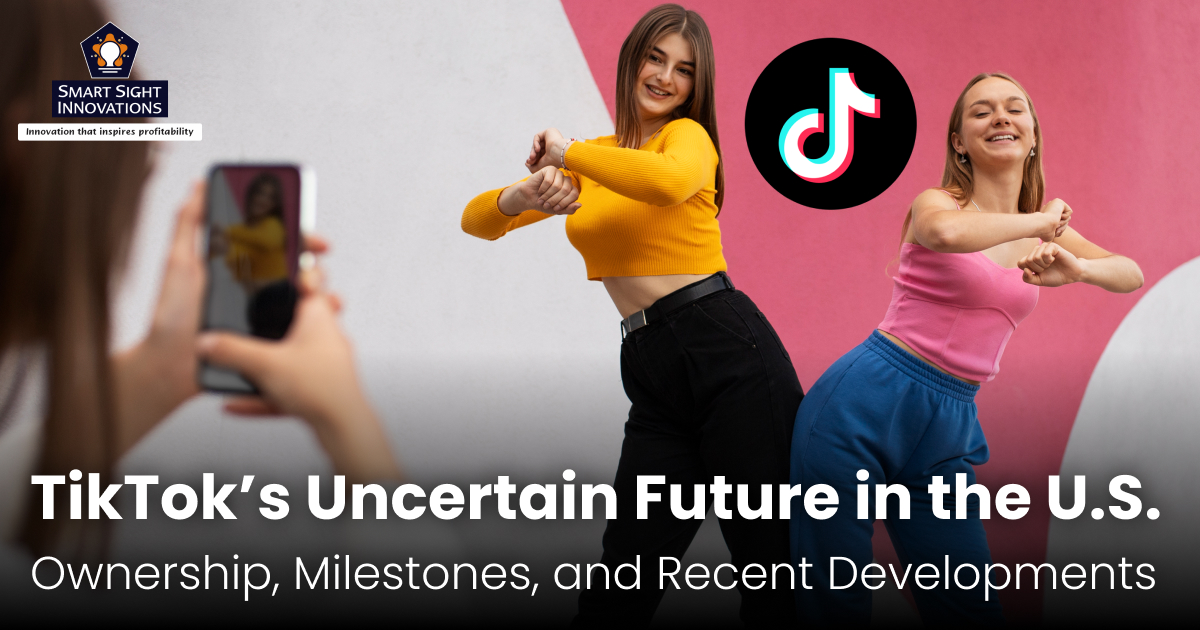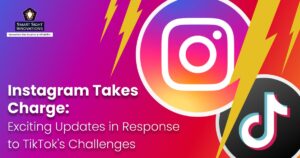
TikTok, the viral short-form video app owned by Chinese company ByteDance, has been at the heart of one of the most complex political and business dramas in recent history. With millions of American users relying on the platform for entertainment, creativity, and income, the app has become more than just a social media service, it’s a cultural phenomenon. But in recent years, TikTok has been entangled in Washington’s ongoing battle with Beijing over data security, influence, and tech dominance.
Now, in 2025, the saga has reached a pivotal point. Through a newly signed executive order, President Donald Trump has authorized the sale of TikTok’s U.S. business to a consortium of U.S. investors. This comes after multiple delays, tense negotiations, and growing uncertainty for millions of users. The new deal could reshape TikTok’s presence in the U.S., or potentially dismantle the version we know today.
This article breaks down why TikTok’s future has been so uncertain, the timeline of major milestones, the new deal and investors involved, and what users should expect in the coming months.
Why TikTok Became a Target in the U.S.

Since 2019, U.S. lawmakers have questioned whether TikTok poses a national security threat. At the center of the concern is ByteDance’s ownership and whether the Chinese government could compel the company to hand over sensitive data from American users. TikTok has consistently denied these allegations, emphasizing that it stores U.S. data on local servers and follows American laws.
Still, the app’s meteoric rise, becoming one of the most downloaded apps globally, made it a focal point of the U.S.-China tech tensions. Critics argued TikTok’s popularity could allow China to shape narratives, influence elections, or spread propaganda.
For users, this high-stakes debate has meant years of uncertainty, with repeated threats of bans, temporary removals from app stores, and fears that their favorite app could vanish overnight. In early 2025, a brief outage left millions of Americans panicked until TikTok quickly reappeared on the App Store and Google Play.
Trump’s Executive Order: A $14 Billion TikTok Deal

On September 25, 2025, President Trump signed an executive order approving the sale of TikTok’s U.S. operations. According to Vice President JD Vance, the deal values TikTok U.S. at around $14 billion. The executive order follows Trump’s fourth extension of the TikTok ban deadline, giving negotiators more time to craft a deal that would satisfy both Washington and Beijing.
Importantly, Trump also announced that China has given its approval for a U.S.-led takeover, a rare sign of cooperation between the two countries amid ongoing tech rivalry.
Who Will Own TikTok in the U.S.?

The approved deal centers on a consortium of American investors, with Oracle, Silver Lake, and Andreessen Horowitz leading the group. Oracle is expected to play the most prominent role, overseeing TikTok’s cloud hosting, security infrastructure, and retraining of a U.S.-based version of the algorithm. Silver Lake, a private equity firm with a strong track record of investing in major technology companies, adds financial weight and industry expertise to the partnership.
Meanwhile, Andreessen Horowitz, one of Silicon Valley’s most influential venture capital firms, brings deep experience in scaling innovative startups, strengthening the consortium’s ability to guide TikTok’s future in the U.S. Together, these investors are expected to hold about 80% ownership of TikTok U.S., while ByteDance and other Chinese stakeholders would retain the remaining 20%.
The deal also creates a new board of directors, primarily composed of Americans, with at least one government-appointed member to oversee compliance with U.S. national security requirements.
What Users Should Expect

Reports from Bloomberg suggest that the TikTok app may eventually be discontinued in the U.S. and replaced by a new, American-owned platform. Users would need to migrate to this version, although details about its features, branding, and differences remain unclear.
For creators, the uncertainty is even more significant. Many depend on TikTok for income through sponsorships, partnerships, and TikTok’s creator fund. A major rebrand or disruption could shake the influencer economy, while advertisers may hesitate to commit until the deal stabilizes.
A Timeline of TikTok’s U.S. Battles

TikTok’s rocky relationship with the U.S. government began in August 2020, when President Donald Trump signed an executive order to ban transactions with parent company ByteDance, citing national security concerns. Just a month later, the administration pushed to force a sale of TikTok’s U.S. operations, with Microsoft, Oracle, and Walmart emerging as leading contenders. The ban, however, was temporarily blocked by a federal judge, giving TikTok a reprieve while legal challenges unfolded.
The issue carried over into the Biden administration, where the debate over TikTok’s data security and ownership structure intensified. In 2022, the Senate passed a bill targeting TikTok, and President Joe Biden signed it into law. TikTok responded with a lawsuit, arguing that the ban violated the First Amendment rights of its American users and insisting that its U.S. operations complied with all local data laws.
By 2023 and 2024, pressure mounted as bipartisan lawmakers continued to call for stricter oversight. TikTok remained on the defensive, repeatedly denying ties to the Chinese government while pledging to secure U.S. user data through Project Texas, its partnership with Oracle.
Fast-forward to 2025, and the platform is once again at the center of political drama. Trump, now running for a second term, shifted his stance, advocating for a 50-50 ownership split between ByteDance and American investors. With numerous bidders vying for control and fresh executive orders redefining the terms, TikTok’s future in the U.S. remains fiercely debated and far from settled.
Competing Bidders

Although Oracle and Silver Lake emerged as frontrunners, the race to acquire TikTok’s U.S. operations was crowded with high-profile contenders. The People’s Bid, spearheaded by Project Liberty founder Frank McCourt, drew support from Reddit co-founder Alexis Ohanian, investor Kevin O’Leary, and web pioneer Tim Berners-Lee.
Another major group, the American Investor Consortium, was led by Jesse Tinsley and included Roblox co-founder David Baszucki, Anchorage Digital’s Nathan McCauley, and YouTuber MrBeast. Tech giants like Amazon, Microsoft, Walmart, and others also explored bids, underscoring TikTok’s immense cultural and financial value.
TikTok’s Uncertain Future

TikTok’s future in the U.S. remains deeply uncertain, shaped by a mix of political pressure, regulatory scrutiny, and ongoing negotiations over ownership. While a framework deal has been approved, the details of how the platform will operate under new leadership, and whether it will fully separate from ByteDance, are still unclear.
Reports suggest U.S. users may eventually have to migrate to a rebranded or modified version of the app, raising questions about continuity, content moderation, and user data protection. For millions of creators and businesses reliant on TikTok, the uncertainty creates both anxiety and anticipation about what comes next.
TikTok’s journey in the U.S. has been nothing short of extraordinary, a collision of technology, politics, and culture. What began as a viral app for dancing and lip-sync videos has grown into a global social media powerhouse, now at the heart of international negotiations.














